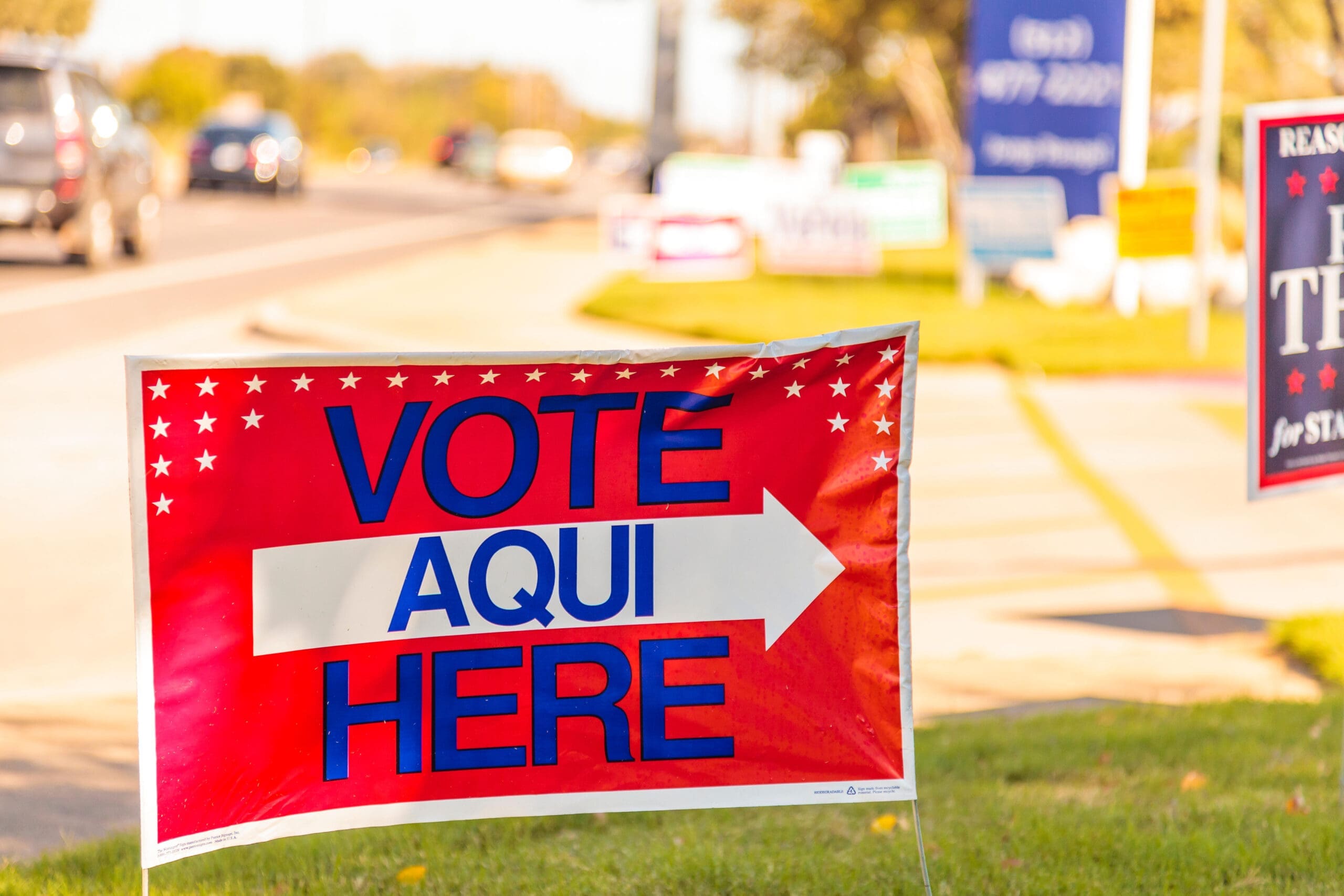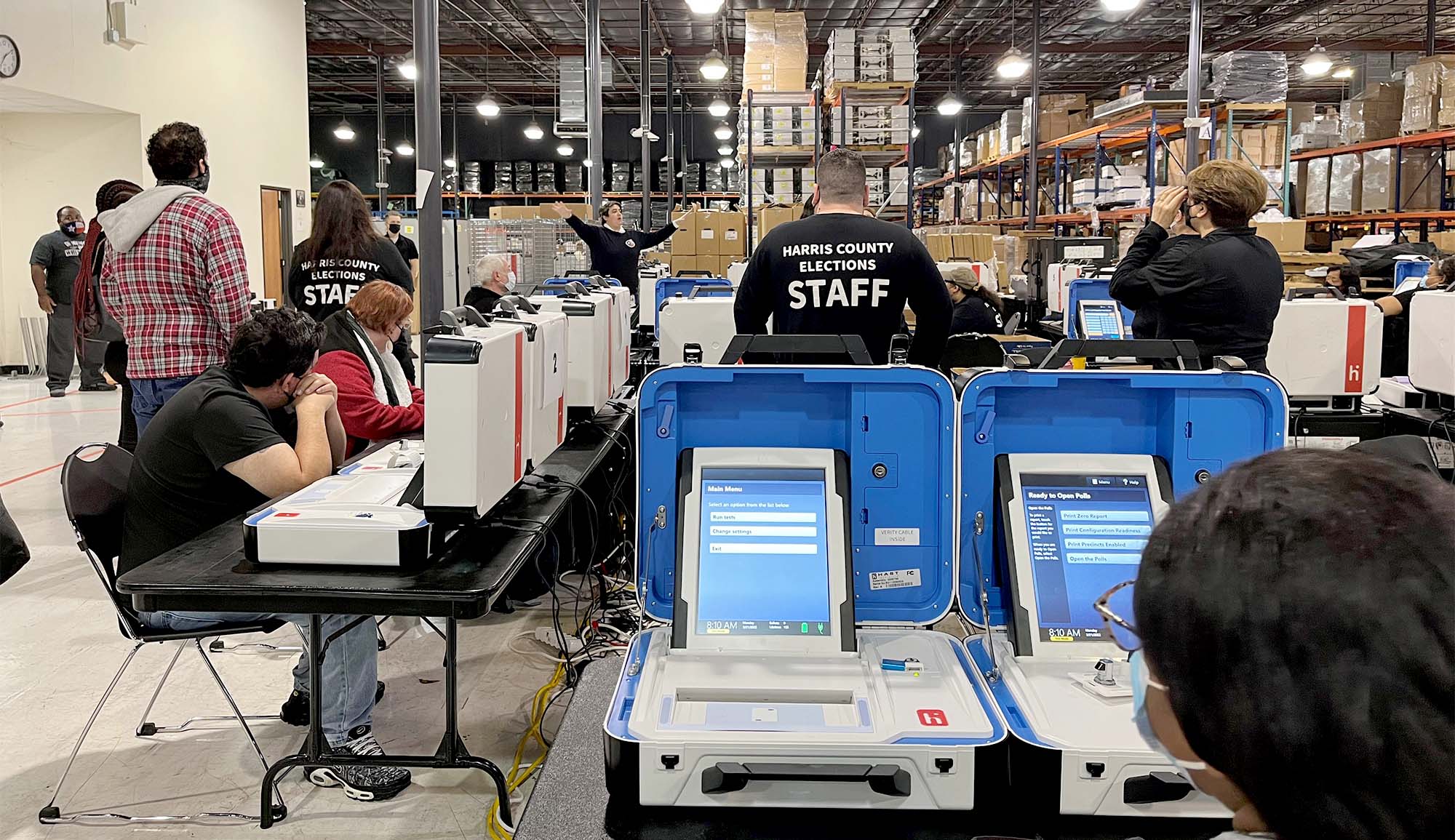Texans have a new weapon in the fight against election fraud.
This week, Texas Public Policy Foundation launched an initiative aimed at combating corruption in the voting process—a concern for Texas voters throughout the state.
“Election integrity is a vital matter for all Texans,” TPPF Vice President Chuck DeVore said in a press release Wednesday. DeVore said the research institute’s analysis of 2018 election data “indicates a high likelihood of mail-in ballot fraud” in highly competitive elections.
“Election fraud must be curtailed, and Texans’ right to vote without interference or intimidation must be secured,” he added.
The new Election Integrity Project will provide voters across the state with information about election laws and educate them on ways to protect their ballots, identify fraud, and file complaints. TPPF will also research voting issues and promote public policy that secures the reliability of our election system.
“The most fundamental feature of a representative democracy is the citizen’s right to vote,” TPPF Executive Director Kevin Roberts said. “It is key to the basic structure of our government that guarantees the rule of law, the sovereignty of the people, and individual freedom.”
The foundation says their project focuses on educating the public based on three general principles:
- Voters should understand their rights and the rules of voting, whether at the ballot box or voting by mail.
- Voters should not be intimidated into voting for someone they do not believe in.
- The voting system should preserve the integrity and safety of each ballot.
“Votes should never be bought, sold, or stolen, as the corruption of elections leads to government corruption,” added Rafa Bejar, TPPF’s director of outreach.
TPPF first announced plans for the new initiative at their January Policy Orientation, where they also premiered a six-minute video highlighting the connection between election fraud and official corruption.
“Politiquería” exposes the established network of illegal vote harvesting—funded by candidates and carried out by paid campaign workers known as politiqueras—that operates across the Rio Grande Valley in every election cycle.
Omar Escobar, district attorney for Starr, Duval, and Jim Hogg counties, is featured in the video and also participated in a TPPF panel discussion of election integrity issues.
He said the “mail-in mafia”—people profiting from organized mail-ballot fraud—isn’t the only source of election corruption in the RGV. Illegal voter assistance and intimidation are happening at the polls as well, and the victims are often elderly voters.
Escobar is one of the few DAs in Texas who has prosecuted voter fraud and the first to proactively investigate illegal ballot harvesting during an ongoing election, aided by Starr County’s Special Crimes Unit.
In last year’s legislative session, Escobar called for stiffer laws and penalties to help prevent and prosecute ballot fraud, both in-person and by mail, but lawmakers failed to pass the reforms he and other law enforcement championed.
Fighting election fraud and corruption didn’t make the two-term DA popular in all quarters. Escobar lost his bid for re-election in Tuesday’s Democrat primary. Whether or not the next DA—or others around the state—follow Escobar’s lead enforcing election laws, he cautioned that prosecuting fraud cases is very hard to do without local resources and the will to do it.
Election fraud isn’t isolated to South Texas; it’s an ongoing problem statewide.
Texans can learn more about TPPF’s new initiative at texaspolicy.com/vote.





